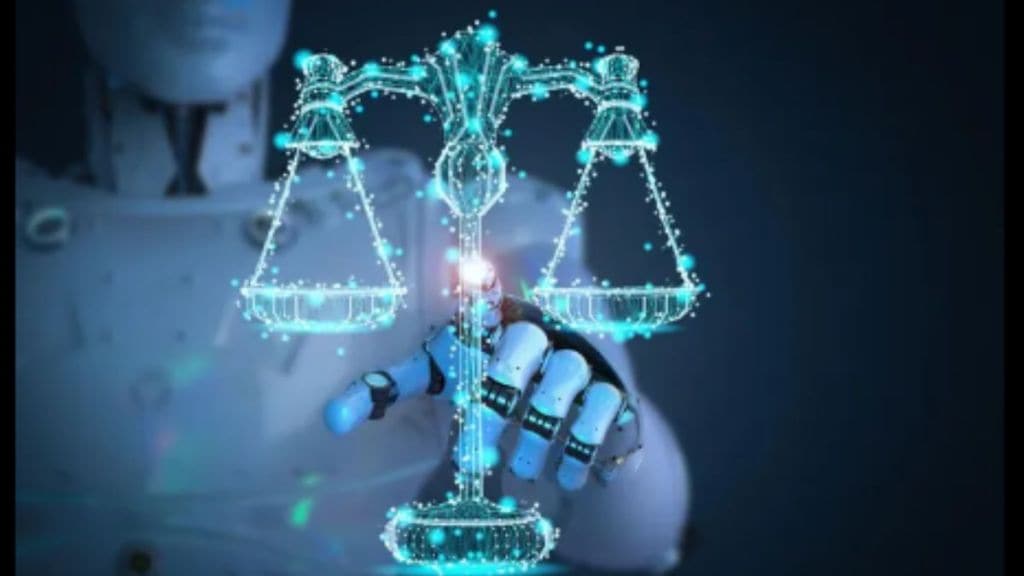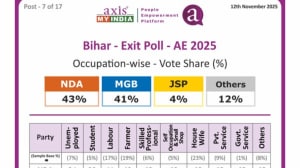For years understanding legal jargon, has been elusive to the common man, requiring deep research and time. But with the intervention of artificial intelligence (AI), the legal sector can soon see a transformation. To be specific, the use of Explainable AI, which explains your queries along with the source of these explanations, can bridge the gap between legal authorities and the common man. Saakar S Yadav, founder of Lexlegis.AI, a legal technology startup, explains how his company aims to empower legal research through Explainable AI.
On Thursday, during the launch of ‘ASK’, which is Lexlegis.ai’s first Explainable AI querying model, he spoke about how this LLM (large language model) is trained on data catering to the legal sector .
Decoding Lexlegis.ai’s ‘ASK’ model
S0o, what is the ‘ASK’ model and how does this work? ‘ASK’ can be defined as an end-to-end chatbot that provides answers to queries related to direct tax in India. Currently, ‘ASK’ just deals with direct tax and aims to include corporate laws and criminal laws, among others by the year 2025. The company further aims to bring options for drafting legal documents and interact with legal authorities/experts online.
How is ‘ASK’ different from other chatbots such as OpenAI’s ChatGPT. In response to this Yadav explains that while ChatGPT deals with a vast amount of data, most of this data is sourced from random sources like documents, web contents and social media, among others. On the other hand ‘ASK’ specially deals with legal content. This includes law firms, government departments, professionals and individuals, corporate legal departments, courts and tribunals, small, medium and micro enterprises. Most of the ‘sources’ of the ‘ASK’ model’s answers/repositories are based on documents provided by the Supreme Court.
“Lexlegis.ai is designed to empower judiciary and legal professionals with AI-driven tools to simplify and sharpen research,” Yadav said. Also the ‘ASK’ model aims to bring more regional languages other than English and Hindi. Moreover with ‘ASK’ you can get concise answers to your legal queries quickly. The founder also claims that the AI model is free of AI hallucination. Notably, AI hallucination is a glitch that can provide you with wrong or irrelevant information to your queries.
Explainable AI in the legal sector
According to recent data by the Supreme Court, there are about 44.9 million cases pending in India. Most of these cases stay pending due to the lack of faster research. With Explainable AI legal researchers can speed up the process. Explainable AI helps to characterise model accuracy, bring transparency and fair outcomes in AI-powered legal decision making.
In addition to this, in case you have any form of doubt on its solutions you can get the source of the platform from which the answers are sourced. This not only makes the answers ethical but also trustable. Understanding law and legal issues is complicated as it is associated with different laws that need to be constantly updated with time. By using Explainable AI the whole process can be sped up and made easy.
The future of AI in the legal sector
With quick developments around AI and AI-startups starting to bloom in the legal sector, it looks like we might see Explainable AI bring better transparency between the legal authorities and the common man. Yadav explains that when he initially ventured into this task of building AI specifically catering to legal data, he was surprised that there was a lot of competition in this field. He gave examples of ‘Harvey’ which is also an AI-chatbot dealing in the legal sector. Harvey is backed by big names like OpenAI and Sequoia, among others.
Furthermore, he concluded “I believe in the future we can expect many law boutiques and AI models created just for dealing with legal issues. It’s not far where we can get unbiased and transparent judgements of cases within minutes, which traditionally takes years.”









